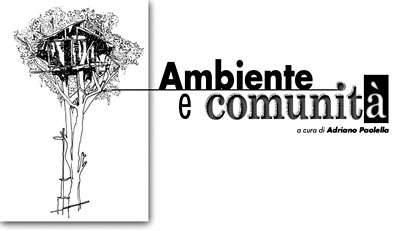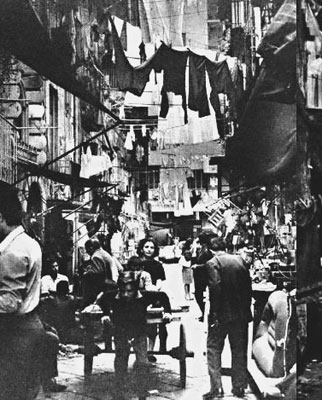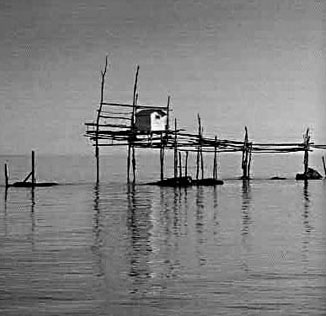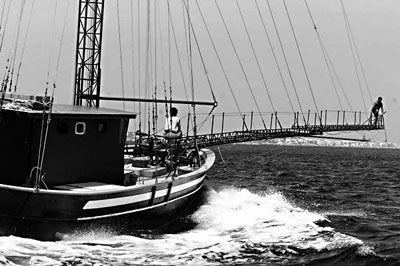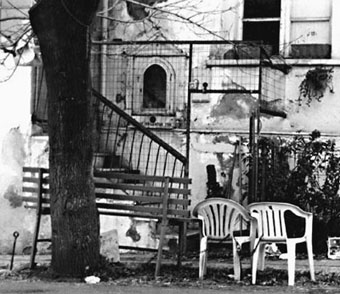
|
ecology
|
||
|
reflections
When
a community, in balance with the places in which it is
established, directly managed their own needs and resources as
necessary and takes down the detailed rules of exploitation that
do not affect the potential of these resources. In this way does
not inhibit the future livelihood, and with appropriate
behaviors, tends to minimize the negative effects related to the
removal of matter and the transformation of the territory.
When a community refuses to bear the cumbersome and harmful
changes, the promoters call it the indispensable, even in the
case of an application artificially increased, and this often
allied business interests, governments and administrations. Even
the end-users often perceive critically the inescapability of
goods or processing requests for alternatives and not accrue not
only of location (so you do here or there), but structural (it
does or does not) and system (change in market , changes in mode
of transport, etc..) the choices made.
There are two simple tests that could be done to verify the
adequacy and the indispensability of a transformation.
The poor can not buy homes, not fuel the housing market and therefore will have no less than government intervention. Yet the territory of the planet is covered with houses and in our country there is an area per capita and a number of unoccupied homes or seasonally occupied dwelling that they can make twice the population. This condition has deconstructed the environment degraded the landscape and led to all kinds of pollution (emissions, waste, drainage, etc.). The problem is directly linked to the role that is given to the wrong houses that:
Most of the Italian population is integrated into the proposed
housing model, and makes ongoing benefits (while part suffers the
disadvantages). The attempt to reduce the uncertainty of old age
in the absence of adequate social coverage, the search for stable
integrative contributions to domestic economy, the desire to
secure savings outside the financial oscillations is realized
with the acquisition of property. The
above blends to shapes entrepreneurial economically much
stronger, so, in a frantic rush to guarantee economic, small and
medium incomes support the great speculations. The small
interest, whose needs may be obvious in very different ways, says
the massacre of the territory, the major amnesties, brutal laws
on common assets and abuses, but also the exploitation of
students, immigrants, the poor have to pay rent unsustainable.
The small and widespread interest becomes an accomplice to a
modus operandi that deconstructs the environment and penalizes a
part of society.
These are difficult problems to resolve because of the economic structure at the base of the country to address them properly, however, need to be addressed with a comprehensive view, revealing the complexity of the reasons that have been originated and finding durable solutions and self-managed.
testimonials
The
picture shows the traditional house of a population of
Indonesia.
In
the thirties of last century, a researcher asked the Inuit
(Eskimos) to draw their hunting grounds.
observations on the contemporary
In some photos a few years ago we saw a number of
materials, mostly oxygen cylinders as well as plastic sheeting,
abandoned on a snowy plateau.
There
are industrial processes that generate waste in the form of waste
production, packaging (which must be of greater consistency than
those of traditional products to ensure no alteration of the
goods on long journeys, in which large retailers do not want to
bulk) , production in excess of needs (to overcome the
competition, to reduce costs, to occupy new market areas), of
"innovations" designed to dispose of goods as effective
to support the production of products "disposable"
(which if the goods are environmentally aberrant perfect for this
type of production model).
The case of the accumulation of waste in the
streets that has affected Naples several times in recent years is
the result of a wrong model whose crisis if that city has had its
maximum exposure may also occur in other situations.
images from contemporaneity
In
the sixties many "right-thinking" of Naples who saw the
clothes hanging in the small shops that would expand the public
domain in the dense alleys of social relations, all the signs of
a cultural degradation, the signs of a lack of decorum that
inhibited the future of the
city.
The
two images represent two fishing methods traditionally used in
the respective coasts of the middle Adriatic sea and in the
Strait of Messina.
Living
places involves an adjustment of the same needs and the pleasure
of those who live in them. This is a right of everyone, a right
that can be implemented with a direct action on the condition
that it is not a nuisance to anyone or in any manner directly or
indirectly.
|
||
